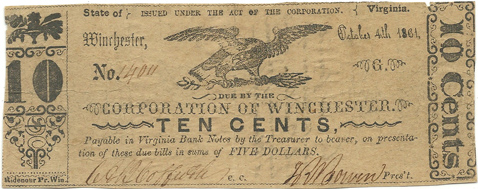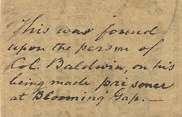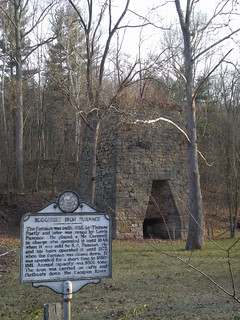
PREV ARTICLE
NEXT ARTICLE
FULL ISSUE
PREV FULL ISSUE
A Bank Note Reporter article by Mark Hotz published October 10, 2017 describes some unusual Civil War obsolete notes. One that caught my eye was an inscribed note from nearby
Winchester, VA. -Editor
 Inscribed currency from the Civil War is rather hard to find, notwithstanding the occasional Confederate piece with someone’s attempted forgery of Robert E. Lee’s signature scrawled upon it. I have in my collection several unusual items of Civil War vintage. The first that I will present to you is a $1 bank note of the Girard Bank of Philadelphia, dated Jan. 9, 1862. Inscribed in bold pen on the back is the following:  “This Note was given / to Mrs. Celia Coe / By J. G. Stewart of / the Mobile Cadets/ He took it out of / a Federal Cols. / Pocket on the Battle / field of the Seven / Pines the first Battle / he was ever in / given to her at / Winchester Virginia / October 21st 1862.” I am sure many of you can see how this item certainly piqued my interest, and my excitement was palpable when I obtained it. I initiated an Internet search in an effort to find out more about J.G. Stewart and the mysterious Mobile Cadets. After a short but determined inquiry, I found some information that really brought the item to life. The Mobile Cadets were none other than Company A, 3rd Alabama Infantry Regiment. The Mobile Cadets consisted of volunteers from Mobile County, Ala., and was the very first company to volunteer to serve the Confederacy. The 3rd Alabama was the first regiment from that state to offer its services to the Confederate cause and the first to be sent to Virginia for mustering duties. Jones M. Withers was elected its first colonel. The 3rd Alabama had been held in reserve in Norfolk for almost a year without seeing any action. Its “baptism of fire” came on June 1, 1862, at the battle known as Seven Pines to the Confederates and Fair Oaks to the Federals. This battle was part of the great Peninsula Campaign in which the Union Army, under the command of Gen. George McClellan, came within 10 miles of Richmond but failed to capture it. I have yet to determine the identity of the officer from whose pocket the note was taken, but how many colonels of Philadelphia units could have fallen at Seven Pines? If any readers can offer any further assistance here, I would be grateful. I asked researcher Eric Schena about the Winchester note. He writes:  That is the type of thing I like about circulated notes, especially ones with stories. The Winchester note is not especially rare but the inscription on the reverse is neat. Hotz is correct, it's not Blooming Gap, it's Bloomery in Hampshire County, which is actually just a few minutes from where I live just over the state line. Bloomery had an iron furnace there, one of a couple in the Northern Shenandoah Valley area that was started during the Hard Times period. Remains of the stack are still visible right off of Rt. 127 (I am attaching a photo). The interesting thing is that there is an extremely rare series of Hard Times era paper scrip that was issued by Bloomery Forge - I have only seen one example of it in person. The other interesting of note is about the Winchester note: a pile of Corporation of Winchester notes were found during demolition of the Conrad House downtown in the 1960s when the city was putting in parking. Most of the notes were in low grade, many in tatters, and most such notes today can trace their origins to that house. To read the complete article, see: Wayne Homren, Editor The Numismatic Bibliomania Society is a non-profit organization promoting numismatic literature. See our web site at coinbooks.org. To submit items for publication in The E-Sylum, write to the Editor at this address: whomren@gmail.com To subscribe go to: https://my.binhost.com/lists/listinfo/esylum All Rights Reserved. NBS Home Page Contact the NBS webmaster 
|